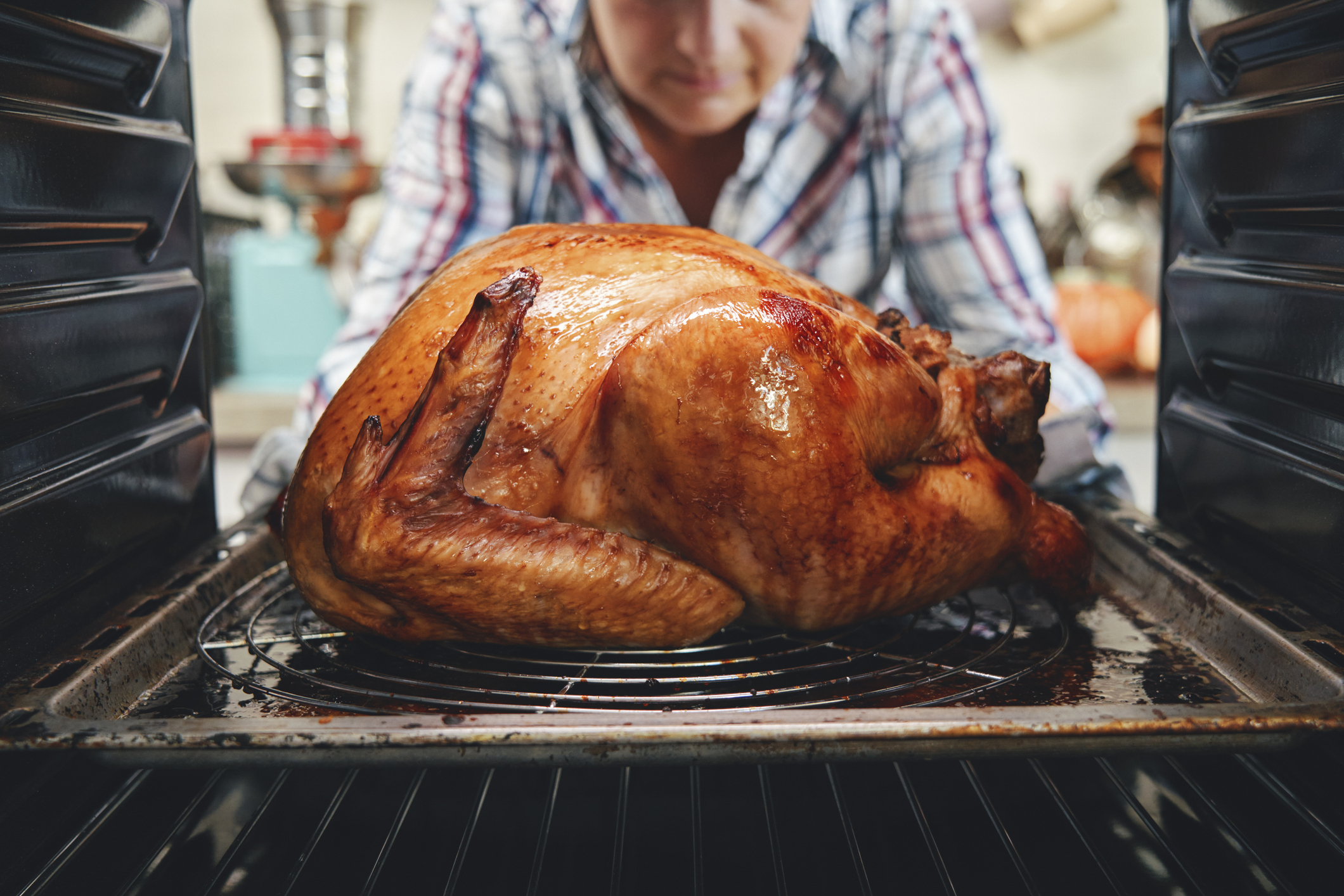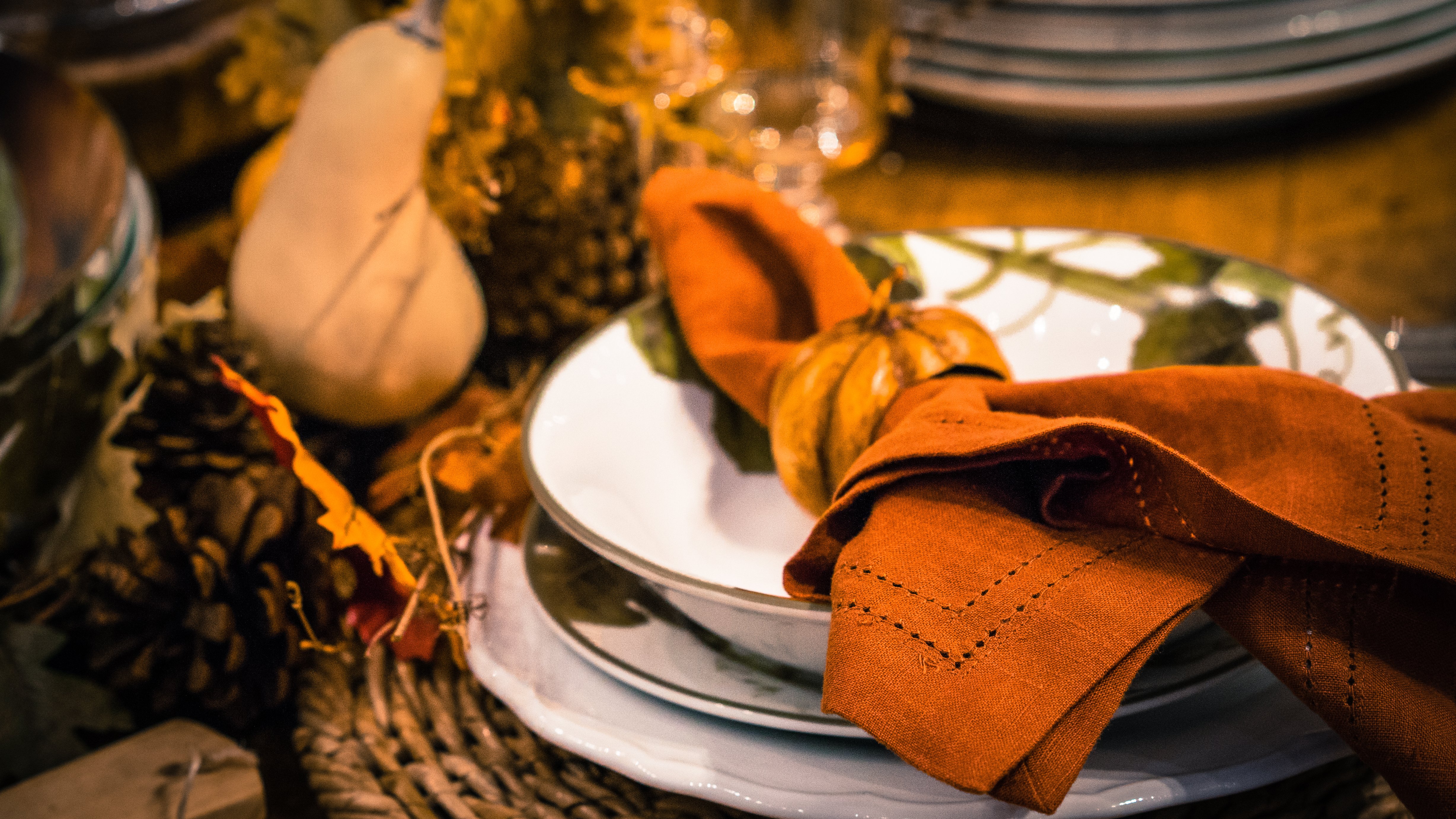Thanksgiving dinner can make your heart beat faster with delight at the sight of all the delicious roast turkey, side dishes and desserts.
But what does the feast — with all of its fat, salt, meat, sugar and alcohol — actually do to your heart health?
WATCH ANYTIME FOR FREE
>Stream NBC10 Boston news for free, 24/7, wherever you are. |
Ask cardiologists what they eat for Thanksgiving and two camps emerge. Some are horrified by the traditional dinner and choose a different menu for their own family.
“If you look at the purpose of holidays, we’re really trying to celebrate life. And yet, we sit down together with people and poison each other. This is something we really need to fix,” Dr. Andrew Freeman, director of cardiovascular prevention and wellness at National Jewish Health in Denver, tells TODAY.com.
Get updates on what's happening in Boston to your inbox. Sign up for our >News Headlines newsletter.
He doesn’t eat turkey or any animal-based proteins anymore, making squash stuffed with quinoa, beans and spices as his main course on Thanksgiving.
But the other camp of heart doctors believes it’s important to enjoy the holiday along with its traditional foods.
“I’m probably not a typical cardiologist. I eat everything for Thanksgiving,” says Dr. Marc Eisenberg, a clinical cardiologist and associate professor of medicine at the Columbia University Medical Center in New York.
“If you deprive yourself for Thanksgiving, then likely the next day or the day after, you’re just going to binge eat everything you feel like you missed out on. I tell most people: Just enjoy yourself.”
It’s one day out of the year, so Dr. Sean Heffron, a cardiologist in the Center for the Prevention of Cardiovascular Disease at NYU Langone Health in New York, says he allows himself some freedom.
“(But) don’t make it six weeks out of the year, which is what many people do from Thanksgiving all the way to New Year’s and it’s easy to do,” he warns.
There are also some important caveats for people with heart disease.
Here’s what heart doctors will eat this Thursday, and the foods and drinks they avoid:
What cardiologists eat for Thanksgiving:
Plant-based side dishes as the main dish
Dr. Susan Cheng, a cardiologist in the Smidt Heart Institute at Cedars-Sinai in Los Angeles, eats a mostly plant-based diet, but she’ll eat a little turkey surrounded by many vegetable side dishes such as a sweet potatoes, butternut squash or salad greens.
“Portion control is huge because eating beyond what we need at any given situation, particularly for one meal, tends to overload the system,” she says.
Instead of having a giant piece of turkey, it’s better to have lots of spinach or broccoli and a little taste of the meat on the side, Freeman advises. He loves green beans and potatoes, but urges people to avoid covering their favorite vegetables in oil and butter.
“Sometimes you see people take 2 pounds of turkey on their plate and they have like a piece of broccoli,” he notes. “It just blows my mind.”
Dr. Nieca Goldberg, a cardiologist and clinical associate professor at the NYU Grossman School of Medicine, tries to make her Thanksgiving dinner less carb-heavy by serving lots of salad and vegetables.
Foods from the air fryer
An air fryer is a great way to take fingerling potatoes and make them crispy and surprisingly tasty, Freeman says.
He also likes to crisp up fresh Brussels sprouts in an air fryer, then top them with a balsamic vinegar glaze.
Fruit, cranberry bread or a mini pastry for dessert
Fruit was a popular option for dessert among the cardiologists. Goldberg advises making “a beautifully colorful fruit salad.” She also likes serving an assortment of mini pastries instead of large pies.
It’s also a great opportunity to make cranberry or banana breads that contain simple ingredients and are delicious and moist, Freeman adds. Some store-bought pies can also work because they’re “accidentally plant-based,” meaning they contain no milk, butter or cream, so check the ingredient list, he advises.
What cardiologists avoid eating for Thanksgiving:
Turkey skin
The skin of an animal is typically very high in fat and calories, Freeman says. “I would never recommend turkey skin in general,” he notes.
Heffron also recommends removing the skin and focusing on the white meat breast pieces, which have less fat.
Butter
All of the cardiologists say they’d skip the butter because of all the animal fat and cholesterol it contains. They urge people to look for ways to reduce or eliminate it in recipes.
“Butter is probably the worst thing people can eat,” Eisenberg warns.
“Butter is used in excess in many situations where you often don’t need as much to get the quality taste of the meal,” Cheng adds.
Heffron says he’s modified his grandmother’s stuffing recipe to include no butter, and it doesn’t taste all that much different.
Gravy
Traditional gravy is just added fats and calories, Heffron notes. Drizzled olive oil could be better, along with some nuts sprinkled on food to add some texture, he adds.
“You can make a delicious gravy out of mushrooms and flour. But if you’re starting to add heavy cream, milk and butter and eggs … it really loads up on calories, saturated fat, cholesterol,” Freeman warns. “These are things that can potentially lead to atherosclerosis down the road.”
Overly salty foods
People with high blood pressure, heart disease or kidney disease need to be careful about their salt intake, Eisenberg says.
Unfortunately, the typical Thanksgiving feast is loaded with salt, even plain turkey meat. Most store-bought turkeys have been brined for days, meaning they’re soaked in salt water for juiciness — some are even injected with salt water for the same purpose, Freeman points out.
Americans already eat more salt than recommended every day, but on Thanksgiving, it can be several times the amount they should eat in a day, he adds.
If you’re making things from scratch, add salt at the very end of the cooking process, which often results in adding less salt overall, Cheng advises. Skip the “fancy” coarse salt, which delivers a much larger volume of salt for the amount of taste you get, she adds.
Alcohol or holiday drinks in excess
The doctors say they may have just a little taste of wine or just skip alcohol altogether. One to two drinks is generally fine, just don’t overdo it, Eisenberg warns.
“People have to watch out because alcohol can raise your blood pressure; it can also put people in abnormal heart rhythms,” he notes.
Traditional eggnog contains lots of calories, fat and added sugar, so it’s best to limit this holiday drink, Freeman says.
More: Thanksgiving
Heart-healthy Thanksgiving tips:
Here’s more advice from the cardiologists about taking care of your heart this holiday:
- Eat breakfast and lunch on Thanksgiving Day so you don’t arrive to dinner extremely hungry.
- Eat as healthy as you can in the days before and after the holiday.
- Be active: Go for a walk before and after dinner, if possible. Play football with your family. Go skiing, if it’s a snow day.
- Enjoy being with friends and family. “Social connections are so incredibly important,” Cheng says. “Psychosocial positive engagement is good for the heart in ways we don’t fully understand.”
This story first appeared on TODAY.com. More from TODAY:




